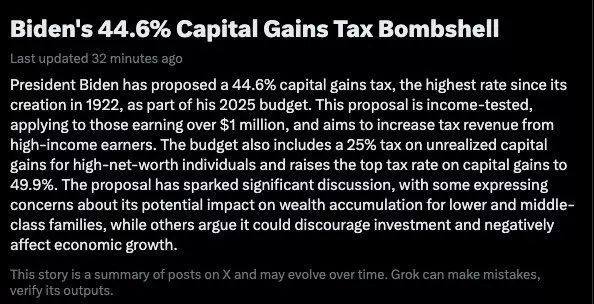
A Realtors Duty to their Clients & Customers
CONSUMER GUIDE: REALTORS’® DUTY TO PUT CLIENT INTERESTS ABOVE THEIR OWN A REALTOR® is a special kind of real estate agent: one who follows NAR’s strict Code of Ethics, including the first and primary pledge to protect and promote the interests of their clients. This obligation means that a REALTOR® cannot make decisions or provide representation in a way that puts their own interests or commissions ahead of their clients’ interests. What does it mean for a REALTOR® to act in a BUYER’s best interest? A REALTOR® has an ethical duty to tell a buyer about every home available for sale that meets their criteria. That means that REALTORS® will let you know about all available homes, regardless of whether the seller or listing broker is offering compensation to your buyer’s agent, and even if compensation offered by a seller or listing broker is less than what you agreed to pay your agent in your written buyer agreement. What does it mean for a REALTOR® to act in a SELLER’s best interest? A REALTOR® should explain to their seller the benefits and costs of the various types of marketing that can be done for a listing, and how potential buyers might respond to such marketing. A REALTOR® is ethically prohibited from telling a seller that their home will be hidden from buyers unless the seller pays a particular type or amount of compensation. What is wrongful “steering”? The REALTOR® Code of Ethics prohibits “steering” buyers toward homes because the REALTOR® will be paid more, or away from homes because the REALTOR® will be paid less. Similarly, the REALTOR® Code of Ethics prohibits a REALTOR® from telling a seller that buyers will be “steered” toward homes because the REALTOR® will be paid more, or away from homes because the REALTOR® will be paid less. How do written agreements protect me from steering? As of August 17, 2024, you will be asked to sign a written buyer agreement before touring a home with the professional you want to work with. NAR’s ethical rules have long encouraged REALTORS® to enter into written agreements with their clients because these agreements promote clarity and transparency. They also help protect you from wrongful “steering” by specifying the amount of compensation the REALTOR® will receive and the services they will provide. Since a broker working with a buyer receives the amount the buyer has agreed to, the amount of any offer of compensation is irrelevant to the buyer-broker’s compensation. Where can I learn more about buyer agreements? NAR has created a dedicated resource on written buyer agreements here. What can I do if I think a REALTOR® is violating NAR’s Code of Ethics? If a REALTOR® acts in a way that places their interests before yours, this is a violation of NAR’s Code of Ethics and should be reported to your state or local REALTOR® Association for investigation and potential disciplinary action. Please visit facts.realtor for more information and resources, and consult your real estate professional or attorney for details about state law where you are purchasing a home. https://www.nar.realtor/infographics/understanding-real-estate-practice-changes-and-the-impact-on-the-consumer

Attention Home Sellers : DO NOT HIRE ANOTHER AGENT
Attention Home Sellers : DO NOT HIRE ANOTHER AGENT The New Way of Doing Business in Real Estate: Understanding the Shift in Buyer and Seller Compensation By Kim Donahue, Kim and Dave Luxury Team The landscape of real estate is evolving, and as professionals committed to staying at the forefront of industry changes, it’s crucial for us to help buyers and sellers navigate these shifts. One significant change that’s gaining momentum involves how compensation is handled between listing agents, buyer’s agents, and, ultimately, the parties involved in a transaction. Traditionally, when a home was listed, the listing agent would specify a compensation amount to be shared with the buyer’s agent. This amount was typically factored into the total commission the seller agreed to pay. However, this practice is rapidly changing, and here’s why: it’s akin to a listing agent publicly sharing the least amount of money a seller is willing to accept. In today’s market, transparency and strategic negotiation are more important than ever. Let me break it down: Shifting the Focus to Net Proceeds for Sellers As real estate professionals, our primary responsibility when representing sellers is to help them achieve their financial goals. This means focusing on net proceeds – the amount a seller walks away with after all expenses are paid, including agent commissions. When a listing agent advertises a predetermined compensation to be shared with a buyer’s agent, it inadvertently impacts how negotiations are conducted. Buyers and their agents may interpret this as a starting point for reducing the overall purchase price, rather than focusing on crafting an offer that meets the seller’s bottom line while addressing the buyer’s needs. The New Approach: Crafting Offers That Work for Everyone Instead of pre-setting a buyer’s agent compensation, the focus now is on encouraging buyers to craft offers that are compelling to the seller based on the overall value proposition. This strategy allows the seller to prioritize offers that meet their financial needs without being boxed in by a fixed compensation model. From a seller’s perspective, this is liberating. It shifts negotiations away from a set percentage and instead focuses on the final net proceeds. A buyer can still negotiate their agent’s fees into the offer – but it’s done within the context of what works best to get the deal done. Empowering Buyers and Their Agents For buyers and their agents, this shift represents an opportunity to align compensation with value. Buyer’s agents are still paid for their expertise, but instead of relying on the listing agent’s pre-set offer, their compensation becomes part of the buyer’s overall strategy in securing the home. By integrating the buyer’s agent fees into the purchase offer, we empower buyers to present deals that make financial sense for everyone involved. The key is not in how much compensation is being offered but in how well the offer addresses what the seller needs to make the sale. A New Era of Transparency and Strategy As the market continues to evolve, our approach must also adapt. We’re entering a new era where transactions are driven by clear communication, strategic offers, and a deeper understanding of each party’s needs. For those of us at the Kim and Dave Luxury Team, it’s about helping our clients make informed decisions in this new environment. Whether you’re buying or selling, understanding these changes is key to navigating the market successfully. As always, our goal remains to provide unparalleled service, guiding you every step of the way toward a successful transaction. Call/Text Kim Donahue: 941-724-2587 Schedule a time for us to connect: www.ConnectWithKimandDave.com

The Unrealized Property Gain Tax: A Devastating Blow for Homeowners and the Middle Class
The Unrealized Property Gain Tax: A Devastating Blow for Homeowners and the Middle Class In recent years, the concept of taxing unrealized capital gains has gained traction among some policymakers, particularly within the Democratic Party. While much of the focus has been on taxing gains in stocks and other investments, a new and alarming proposal targets unrealized gains on real estate. The idea of taxing homeowners on the value increase of their property before they even sell is not only misguided but could have devastating consequences for homeowners, particularly middle-class families. What Is an Unrealized Property Gain Tax? An unrealized property gain tax would levy taxes on the increase in a home’s value, even if the owner hasn’t sold the property. For example, if you bought your home for $300,000 and, over the years, it’s appreciated to $500,000, you could be taxed on that $200,000 gain—regardless of whether you’ve cashed in on it. Why Is This Idea So Problematic? Crippling Financial Burden on Homeowners:Most people purchase homes not as speculative investments but as places to live, raise families, and build memories. The average homeowner is not flush with liquid assets; their wealth is often tied up in their property. Taxing them on unrealized gains forces homeowners to pay taxes on money they haven’t actually received. This could lead to families being unable to pay their property taxes, forcing them to sell their homes prematurely or fall into debt. Targeting the Middle Class:Proponents argue that this tax would primarily affect the wealthy. However, homeownership is a cornerstone of the middle-class American Dream. With property values rising across the country, particularly in urban areas, millions of middle-class homeowners would be caught in this tax net. The middle class, already squeezed by rising living costs, stagnant wages, and inflation, would be disproportionately hurt by such a policy. Retirees and Fixed-Income Families at Risk:Retirees who have paid off their homes and live on fixed incomes would be particularly vulnerable. Many older Americans rely on Social Security and modest savings, and imposing taxes on unrealized gains could force them to sell their homes or take out loans just to meet tax obligations. This could erode their financial security in their most vulnerable years. Housing Market Instability:If homeowners are forced to sell properties to cover these new taxes, it could flood the market with homes, leading to price volatility and market instability. In a worst-case scenario, this could trigger a housing market crash similar to the 2008 crisis. Housing affordability, already a significant issue, could worsen as supply and demand dynamics are thrown into disarray. Discouraging Homeownership:The potential for such a tax could deter future buyers from entering the market, especially younger generations already struggling with student loan debt and the high cost of living. Homeownership is one of the primary ways Americans build wealth, and disincentivizing it could lead to longer-term economic consequences, including reduced community investment and lower economic mobility. Complications in Valuation and Enforcement:Determining the value of a home at any given time is not straightforward. Real estate markets fluctuate, and appraisals can vary. How would the government fairly assess a home’s unrealized gain? The administrative burden and potential for disputes would be enormous, leading to further bureaucratic complications and inefficiencies. Conclusion The unrealized property gain tax proposal is well-intentioned but fundamentally flawed. While the idea of ensuring the wealthy pay their fair share is valid, targeting the primary residences of millions of Americans would cause more harm than good. Homeownership is a key pillar of the middle class, and imposing taxes on unrealized gains threatens that foundation. Instead of punishing homeowners for market conditions beyond their control, policymakers should focus on solutions that genuinely promote fairness without devastating the very people they claim to protect. An unrealized property gain tax is not only impractical—it’s unjust. Watch these videos to understand the impacts.. This article highlights the broader implications of such a tax, showing how it could impact a wide range of Americans, not just the wealthy.
Categories
- All Blogs (74)
- Buying (31)
- foreclosure (4)
- Get to Know Kim (20)
- Get to Know Kim & Dave (15)
- Homes for Sale (27)
- Homes Under Contract (2)
- Lifestyle (17)
- marriage (6)
- Move to Florida (13)
- NAR Settlement (5)
- new construction (1)
- Off Market Property (13)
- Parrish (1)
- partnership (5)
- pre-foreclosure (4)
- Punta Gorda (1)
- Real Estate Market Update (25)
- Rebuilding (1)
- relationships (7)
- Reviews (10)
- Sarasota (9)
- Selling (39)
- short sale (4)
- Sold Homes (11)
- Things to do in Sarasota (1)
- venice (3)
- wealth (2)
Recent Posts











